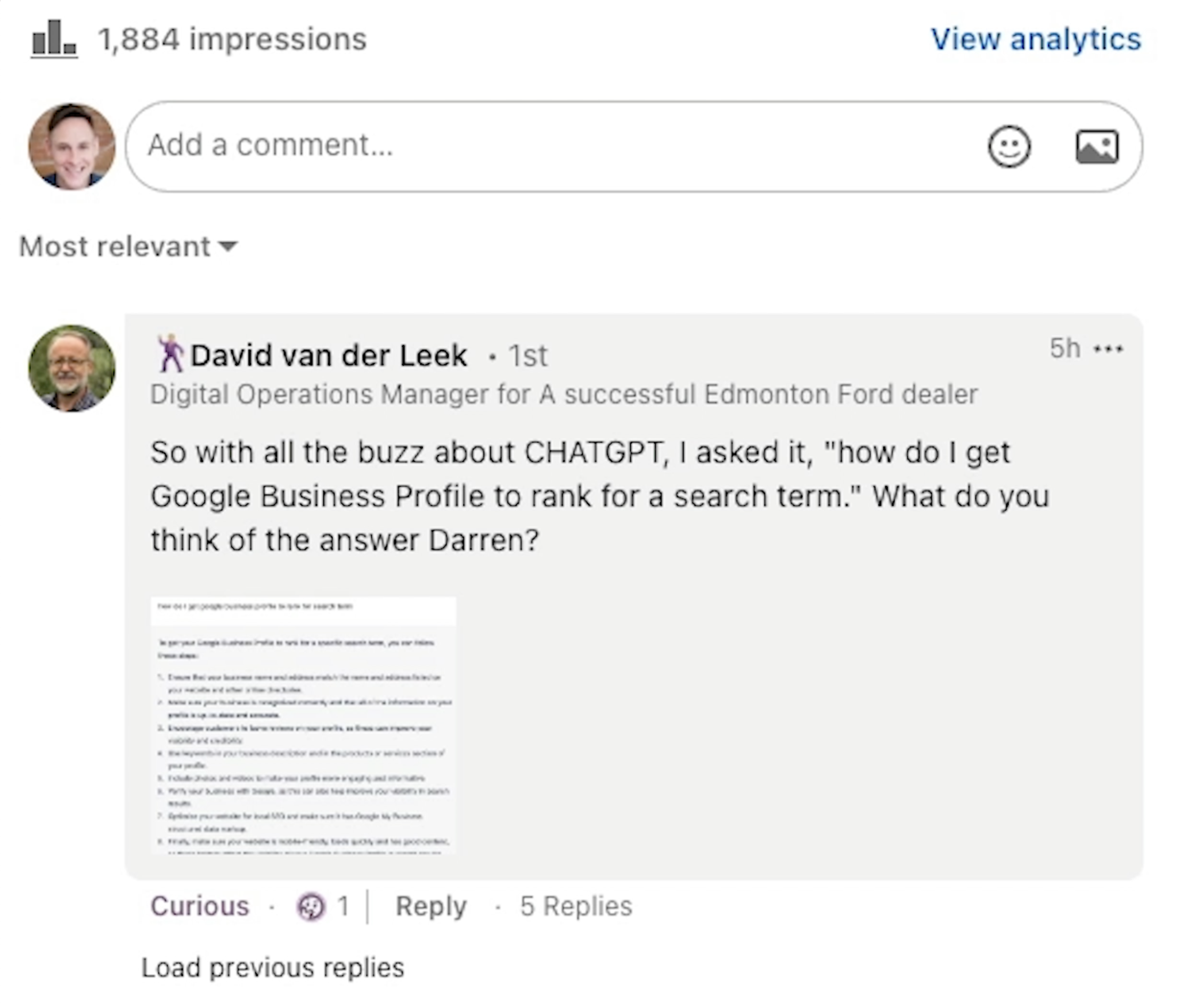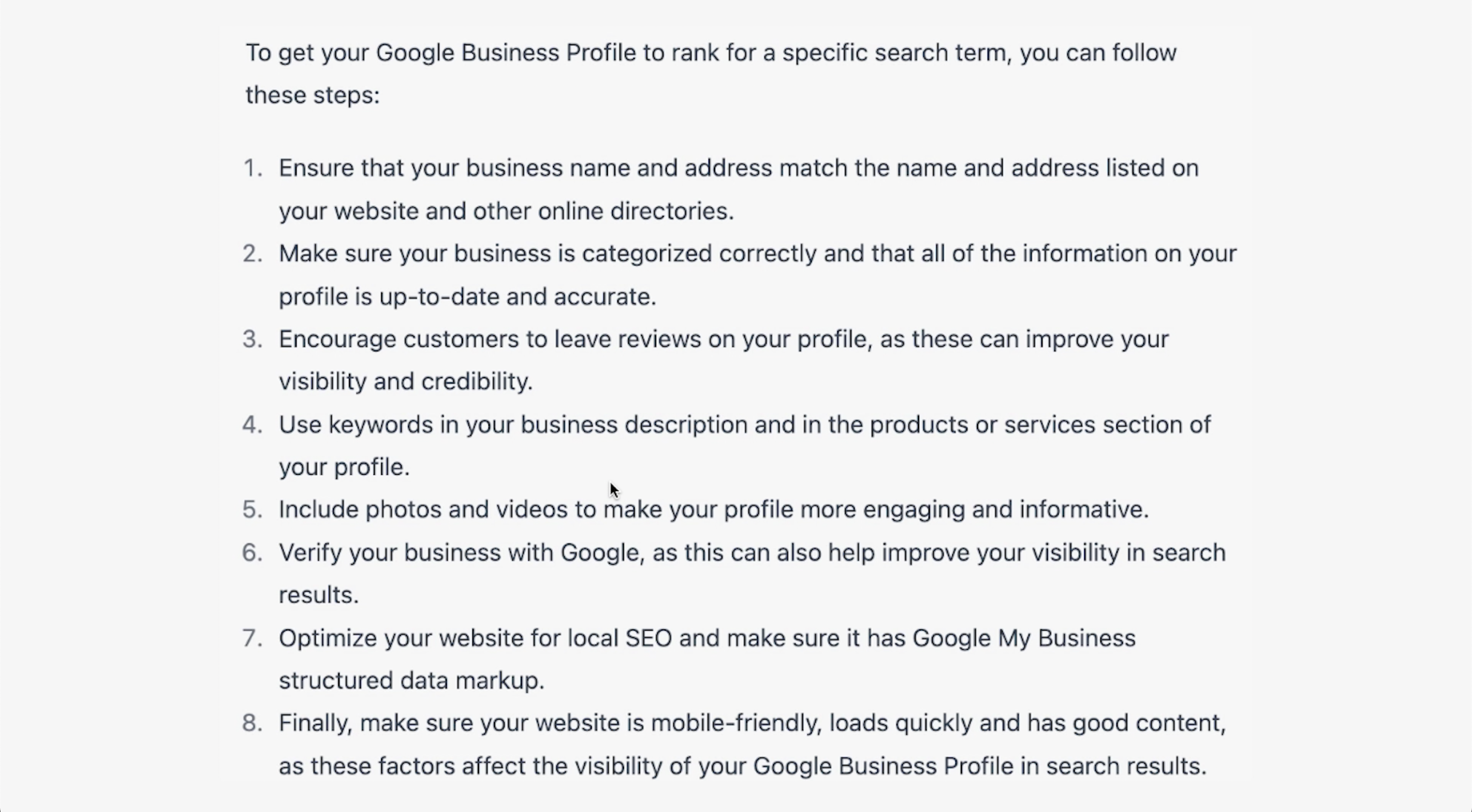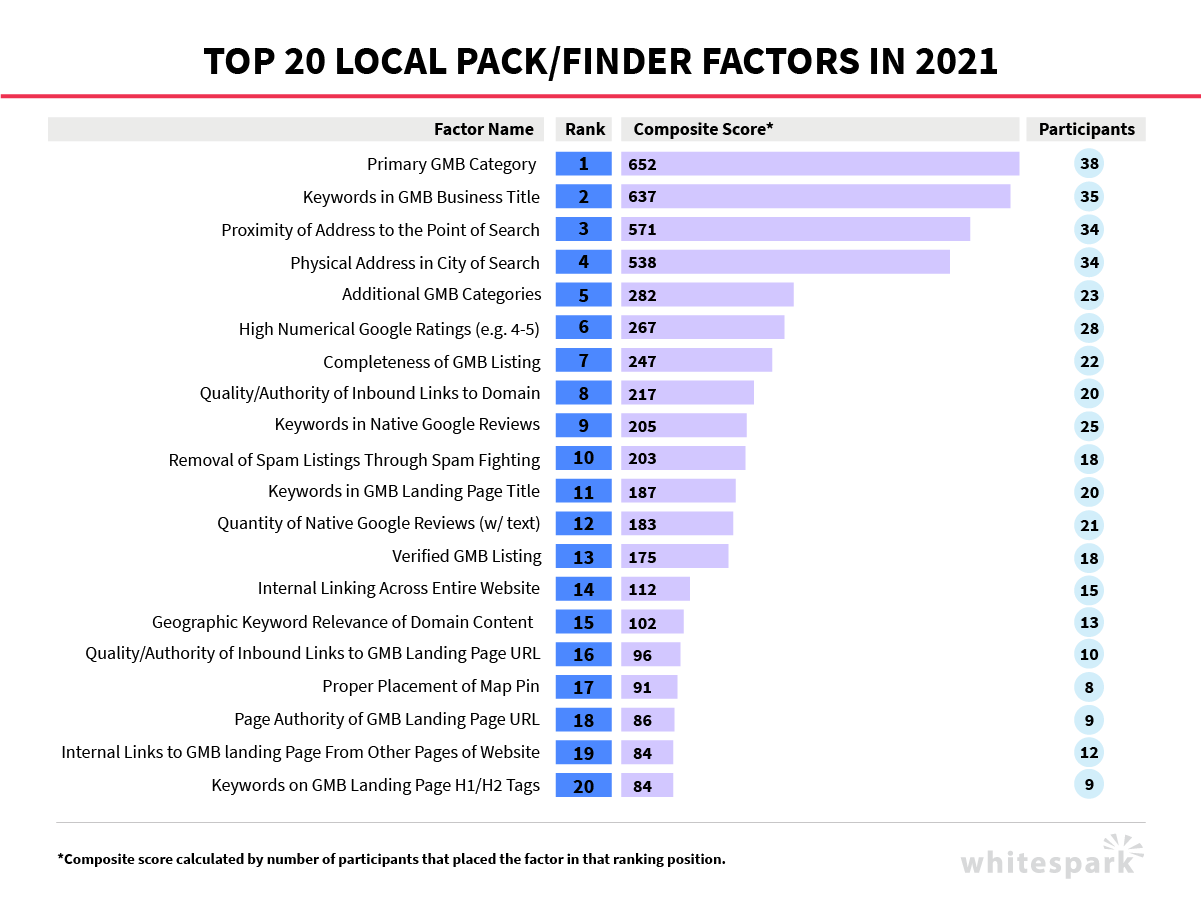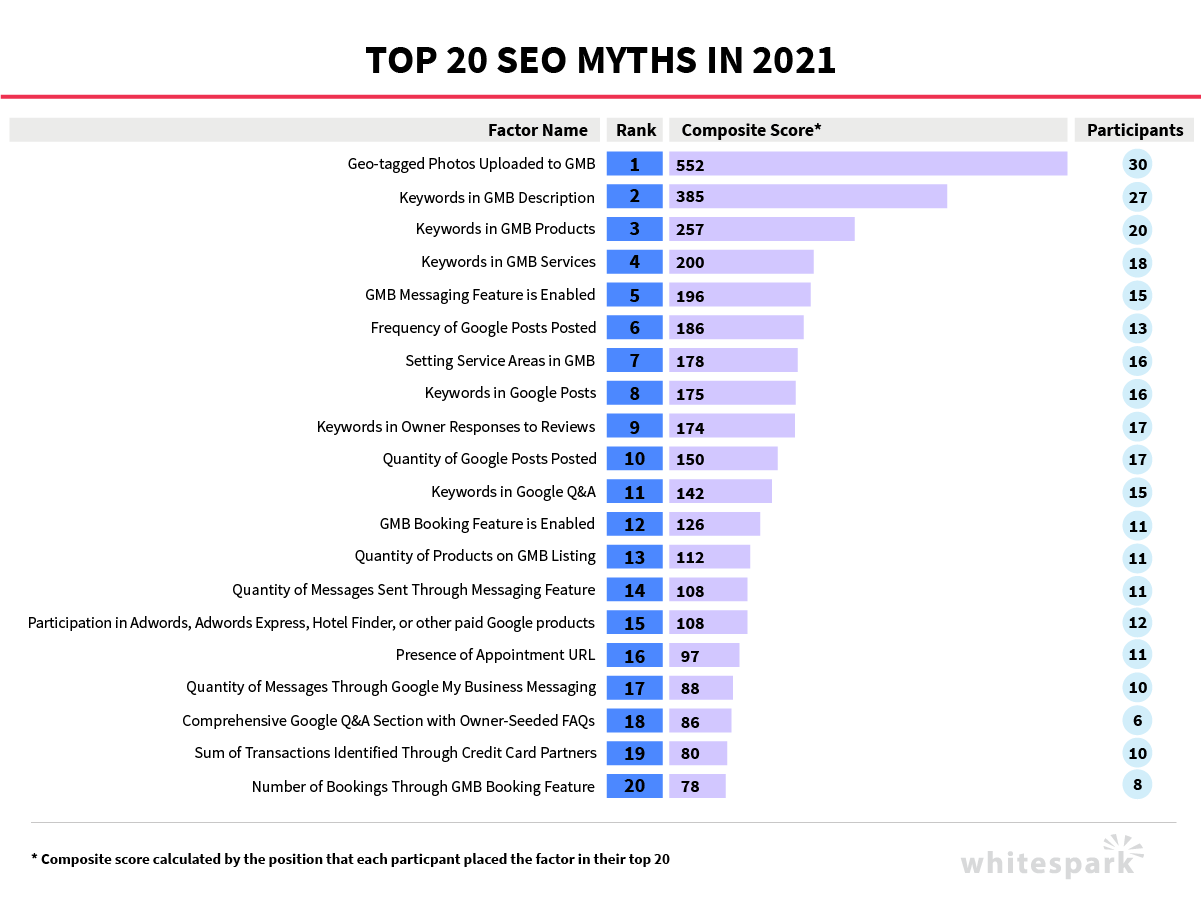🔥 Whitespark's Local Ranking Grids are coming soon! Get notified when we launch
🔥 Whitespark's Local Ranking Grids are coming soon! Get notified when we launch

ChatGPT seems to have become the holy grail of all knowledge, and many people think that it can replace actual research. Well, I disagree. Especially when it comes to local SEO.
In this video, I dissect ChatGPT’s advice on how to make your Google Business Profile rank, and I discuss the problems with the AI’s advice.If you don’t trust AI to do your SEO work, either, check out Whitespark’s SEO Services. Our team consists entirely of humans.
I got a really great comment on my recent LinkedIn post. David van der Leek, says: “With all the buzz about ChatGPT, I asked how do I get a Google Business Profile to rank for a search term.” This is the answer it gave.
This is the answer it gave. And he asked me what I thought of the answer.
And he asked me what I thought of the answer.
So, I’m going to tell you all what I think of this answer. The question was about getting a Google business profile to rank. That’s the important detail here.
So, right out of the gates ChatGPT is wrong. This used to be the case – and I covered this in a recent video where I talked about citation management. But citation consistency is old school thinking. It actually is not that important for your SEO anymore. Google is very good at connecting the dots and understanding what is a mention of your business and what is not.
So, from a ranking perspective, consistency is not important anymore. You still want to have citations consistent on the sites where real humans are looking at your listings, so that they go to the right address and call the right number, but from a ranking perspective, no. Wrong.
In the most recent Local Search Ranking Factors survey, this comes in as the number one most important ranking factor: Primary GBP category. ChatGPT, you got that part right. Yes, it is very important to be categorized correctly. And then the second part is “all of your information on your profile is up to date and accurate.” That is important to do.
And then the second part is “all of your information on your profile is up to date and accurate.” That is important to do.
10 out of 10 good response. That’s very important.
Review factors come in very high in the Local Search Ranking Factors. It’s very important to get lots of reviews. And, of course, they’re super important for conversions as well.
Wrong. Wrong. Wrong.
This has no impact on ranking. ChatGPT, come on, get it together.
If you look at the Local Search Ranking Factors, you can see that in the top local SEO myths section, number 2 on the list are keywords in the description, number 3 on the list are keywords in products, and number 4 on the list are keywords in services.  It just doesn’t have an impact on ranking. Google’s ignoring these fields from a ranking perspective, so ChatGPT is giving out bad info here.
It just doesn’t have an impact on ranking. Google’s ignoring these fields from a ranking perspective, so ChatGPT is giving out bad info here.
I’m gonna say yes, you should 100% do that. The jury is still out on whether or not those have a positive impact on ranking. They definitely have a great impact on conversions, though.
There may be a secondary impact that happens because you’re getting more engagement: because people are spending more time on your listing, looking at your photos, looking at your videos… Those kinds of things may help your ranking.
I like this advice. Good job, ChatGPT. But in terms of helping you rank, not really.
Wrong. It won’t have any impact on your rankings directly. This isn’t really a factor in terms of your ranking, but it WILL allow you to edit your listing, which, of course, is super valuable. You want to be able to make changes to your listing, update your categories, add new categories, all that will have a positive impact.
But the actual act of verifying versus unvarying is not a signal in itself. You got that one wrong, too, ChatGPT.
Yeah, 100%. You have to optimize your website for local SEO. Make sure that you have lots of content relevant to the products and services that you offer, optimize your title tags, optimize your headings… Just standard SEO stuff. Okay, ChatGPT, you’re right.
I don’t know what Google My Business structured data markup is, but it doesn’t exist. Chat GPT is making stuff up here.
I like the first part of #7, but the second part? Lots of question marks here. Come on, what are you talking about?
This is a bit of a stretch. It’s a really minor factor, if anything. The third part, though, that you have to have good content? Yep, 100%. You want to have really good content that goes into detail about your services, but mobile friendly and loads quickly isn’t really much of a ranking factor.
It’s still good to do, but it’s more of a conversion factor. You want to make sure that people are having a good experience on your website. It should look good on mobile. It should load fast so that they don’t bounce. But from an actual ranking perspective, there isn’t a lot of correlation between speed, mobile friendliness and rankings overall. I give ChatGPT a 3 out of 10 on this advice.
And the problem with all this advice is that it’s based off of the Internet, and the Internet is full of misinformation . And it’s also old. The data that ChatGPT was trained on is from 2021.
So, don’t necessarily trust ChatGPT for local SEO advice.
I hope you found this video helpful. See you next time!If you don’t trust AI to do your SEO work, either, check out Whitespark’s SEO Services. Our team consists entirely of humans.